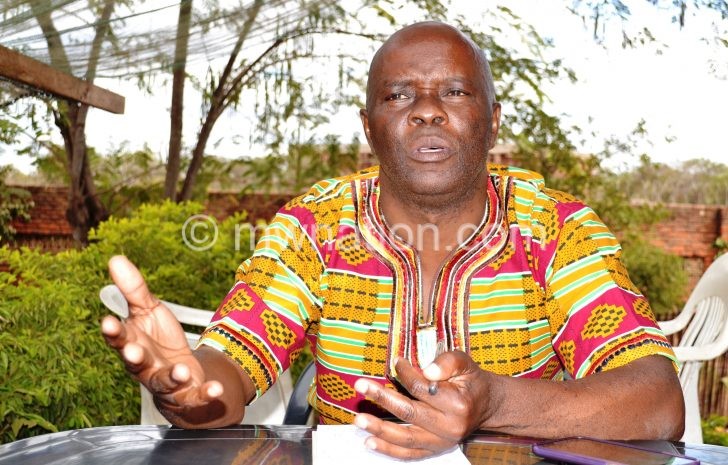Unpacking Amecea plenary assembly
Catholics from all walks of life have been gathering in Lilongwe from as early as Monday for Amecea Plenary Assembly, which officially started on Thursday, July 17 and ends next Saturday. But what is Amecea all about and what is its mandate? Our reporter WATIPASO MZUNGU JNR talks to secretary general of the Episcopal Conference of Malawi (ECM), Father George Buleya, on this and many other things.
Give us a brief background to Amecea.
Amecea is an acronym for Association of Member Episcopal Conferences in Eastern Africa.
It is a Catholic service organisation for the national Episcopal conferences of the eight countries of Eastern Africa, namely Eritrea, Ethiopia, Kenya, Malawi, Sudan, Tanzania, South Sudan, Uganda and Zambia. Djibouti and Somalia are affiliate members.
Amecea was founded in 1961 and its first chairman was then Zambian archbishop of Lusaka who later became Cardinal Adam Kozlowiecki, S.J. He died in Zambia in 2007. Fr. Killian Flynn, OFM Cap, also of Zambia, was Amecea’s first secretary general.
Who holds the authority over Amecea activities?
The authority over all Amecea’s activities rests with the Plenary Assembly of all the Bishops of the Amecea countries. Between the plenary assemblies, the Executive Board takes the necessary decisions, according to the Amecea priorities.
The day-to-day decisions are taken on behalf of the chairman by the secretary general who also coordinates the Amecea departments and institutions.
What is the vision and mission of this association?
The vision of the association is to make the Holy Spirit-filled family of God, committed to holistic evangelisation and integral development.
On the other hand, its mission is to inspire and empower God’s family in Amecea to a credible and prophetic witness to Christ, by promoting unity, justice, peace and solidarity, through three pillars.
Firstly, deeper evangelisation, constant conversion and prayer, inculturation, ecumenism and inter-religious dialogue. Secondly, through relevant formation of all agents of evangelisation and lastly, preferential option for the poor, oppressed and marginalised, particularly refugees, persons affected and infected with HIV and Aids and internally displaced people.
The association further aims at empowering the laity and the religious men and women to play their active role in the church and society, just among other things.
Can you tell us some of the issues you discussed during this meeting?
We were indeed privileged to host this plenary. This year’s plenary was held under the theme: New evangelisation through a true conversion and witnessing to Christian faith.
Suffice to say topics discussed at the Lilongwe plenary included early missionary work of evangelisation in terms of challenges faced and success stories; the context of evangelisation today; new evangelisation as an opportunity for better Christianity in Eastern Africa with focus on family life and small Christian communities and how houses of formation can contribute to the process of new evangelisation.
Other topics included the role of the institutions of learning in the work of evangelisation, with particular focus on the role of chaplaincies and how new evangelisation can help deepen liturgical celebrations, especially the Eucharist and how these celebrations can enhance conversion and the witness to Christian faith.
Delegates also discussed various issues bordering on social, economic and spiritual development of a human being.
By the way, what is the mandate of Amecea?
The mandate of Amecea is of a pastoral nature and includes making policies, to identify priority challenges in church and society and finding common strategies to respond to them at all levels.
Thus, we also come up with means through which we can promote human rights, social justice and peace, freedom of religion, advocacy for the oppressed and good governance.
At the end, we entrust the execution of its resolutions to the Executive Board, secretary general (Amecea secretariat) and national Episcopal conferences, in accordance with the Amecea statutes.
And how often do you hold these plenary assemblies?
The plenary assemblies take place every three years.



